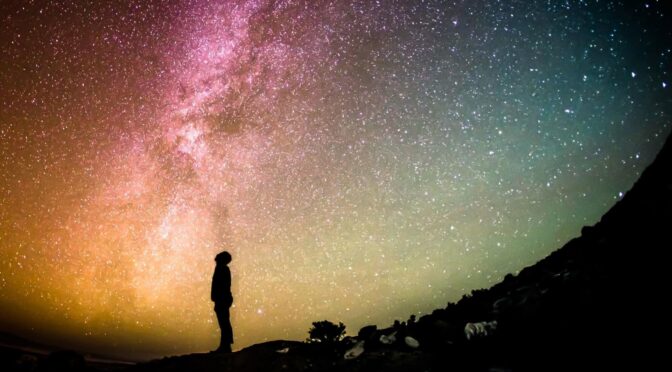MJ: I’m happy to be with you today to talk about whatever may come up. Sometimes I plan these conversations for us and sometimes I leave open to suggestions from you what we should talk about.
TM: I read an article this morning about drug addiction. Most of the story took place in Kalamazoo, Michigan in the woods outside of town where the drug addicts camped. The health workers would venture into the woods to administer treatments to the various drug addictions—multiple drug addictions per person. Conflicting kinds of treatment that they have to provide. And it hurts me to keep hearing these stories, it hurts my heart to hear these stories of these people trapped in this kind of life. And so I wonder what is the responsibility for the rest of us for this. I don’t choose to live that way and so I’m not a burden on society in that way. But what is my responsibility in both contributing to the circumstances that exist and my role to change the way it is and prevent this from happening. It feels like quite a conundrum.
MJ: For those people who are sensitive to the pain and suffering of others; who have empathy and sympathy for those; who can look at them and say with compassion and forgiveness I feel for you. I feel for you in your moment of despair and depression, and in your moment of anxiety of living in a world that doesn’t seem to care. That is indifferent to your survival; that is indifferent to your comfort. That is indifferent to your very life, and whether you exist or not does not matter.
The pain and suffering, being ostracized socially, finding comfort and camaraderie only among those who also suffer, that bonds people in misery. At least in their misery they have something to share with one another.
TM: So what is the role? I see the suffering and understand exactly what you’re saying.
MJ: You asked what is the responsibility toward your brothers and sisters when they’re falling down and they can’t get up. Can a human society be at its best when it ignores its worst? When it ignores its failings as a society to create a container that can hold all the behaviors, desires, all the ambitions of the human race? The challenge to humanity as a group requires that everyone rises to their highest good.
When everyone rises to their highest good then you are able to lift those who may be too weak, who may be too blind or incapacitated in some way. As that baseline average moves over time higher and higher that the bulk of humanity can live in that space of their highest good consciously, knowing where they are, knowing how to cope with the trials and tribulations and the anxieties and uncertainties of living on Earth at this time.
When the bulk of humanity can do that it becomes less of an effort to intervene, to step in and lend a helping hand to those who cannot lift themselves.
TM: While my heart aligns with what you just said, I just want to help them, hug them and say it’s going to be okay. But I don’t know it’s going to be okay because I don’t have any control over them or their minds or know what they go through. I don’t understand why people choose to do those drugs in particular. We’ve all had despair. We’ve all had those moments when we felt incapable of moving one more inch.
But, we don’t all collapse into that behavior. So, there’s a trap door there that most of us are unaware of. We haven’t fallen through it and so we don’t understand. And when they fall through it and go to the other side I don’t know how to reach them, and to love them. Even though I feel compassion for them I don’t know what to do because I can’t relate or understand their experience to that degree. It’s a condition of futility if you don’t know what to do. I think that’s where a lot of people are. It’s easier to say, “pull yourself up by your own bootstraps”.
MJ: That’s always been the temptation of humankind. What you don’t know, you shun. You say, “keep it out, I don’t understand it. It has a negative impact. Get it away from us.” That’s a natural and healthy reaction. If something is causing harm, move away from it. You can’t see what’s causing it; so, move away. Stop the harm first. Don’t let the harm spread to yourself. That’s not a terrible reaction is it?
TM: No, it’s not a terrible reaction. That’s what I’m saying, it’s a natural reaction to me. If I see someone doing something crazy, harming themselves and others around them in such a way, I say I won’t choose that for myself and I don’t want to get near it for fear of being sucked into myself. I have no idea how they got into their situation and why they are still there. It represents a danger and is confounding to the intellect and scary to the emotions. So, most of us don’t want to go near it, we don’t want to think about it. We’d like to understand it but it doesn’t look understandable if you’re not there.
MJ: That’s right, it’s terrifying. It’s terrifying to consider you could be living like that. That they could be living in the woods addicted to five drugs, eating dog food and defecating just feet away from your dwelling. Unable to bathe regularly. Unable to stay warm when it’s cold, or cool when it’s hot. Dealing with insects relentless in attacking you. Fear of wildlife. Fearful of other people with harmful intent. It’s a desperate life. It’s a terrifying life. So, yes, it is particularly frightening when you don’t understand it. It is very easy to turn your head and look the other way, because of that fear. And that as a society is what humans have done. Humanity has turned its collective head. There is a small faction that deals with it—the public health administrators deal with it. They are the proxy for the rest of humanity and they’re doing the best that they can. All they can do is sustain a bad situation. And perhaps mitigate some harms around the edges. But, mostly it’s all they can do to keep it contained. They don’t know how to stop it from spreading, because they have neither funding resources nor complete knowledge. All they can do is treat it for what it is. And that’s what they do. With little to no progress in blunting its progression. All they can do is mitigate the intensity of harm at times.
The rest of humanity sits back looking satisfied that they are making an effort; that they’ve made entreaties to the powers that be that they need some help. The help is slow in coming if it comes at all. And so these people struggle on the front lines uncertain of what else they can do. So, they just continue.
So do the victims. They carry on until they die. Or until they break through in some way. Some do, most don’t. Most die a slow death. A slow, agonizing death of despair and alienation. A social alienation that tears away at what it means to be human in connection with other humans. The physical death is bad enough, but the social death is even worse. It robs a person of hope and connection.
TM: How much will does it take? Where does the will come from for us to say enough is enough. To say we have enough material comfort of possessions—how do we fix these ills? It feels like we’ve become a caretaker society because we’ve created so many problems and so many people have fallen through the cracks and the cracks seem to be getting bigger. And more and more people are falling through which increases the demand on resources to deal with the negativity. Most people don’t want to do that—they don’t like to pay the debt service on all the bad programs and misunderstandings.
MJ: That is indeed what it is. If you think of it as a debt of ignorance, plus the interest because it begins to compound. Economic inequality compounds with poor decision making and poor health standards, and poor education. There is a poverty of resources that contribute to this. And there is a wealth of resources on the other side that prevent those in possession of that wealth from crossing over. They throw small efforts at it, they throw money at it. But mostly they sit in fear, the greatest of all. They stand to lose the most. Their fall from wealth is more terrifying than the person who has an ambition for wealth but never achieves it. That can be a dashed expectation. But to achieve wealth, to see the poverty beneath you, you wish to climb to a higher and higher height so that you can’t see it. You won’t feel safe until you’ve climbed high enough to not see it anymore. Until it is a speck down there. And that you know that any fall you experience will never take you down to that point.
It’s not until then that you feel safe. Until then you feel like any lifeline you throw could be used to pull you into it. And that is what is stopping the real progress to a solution.
TM: And so you’re saying that the impasse is because those who are in a position to help financially and to change the system in ways that would fill in some the cracks people are falling through; you’re saying they are too afraid of falling in themselves even though they have the benefit of height, you’re saying they don’t see it as high enough to escape the fear from falling down. So, what do we do?
MJ: I’m saying that it’s a mix of things. That in the long run although there are many segments of varying degrees of wealth, in the end they all roll up and aggregate into one point of view. If they have more weight than the average person, given a person’s propensity to contrast and compare their lives with others. If they know they are in the top half they feel safe. The person at 51% doesn’t feel as safe as the person at 99%, but they identify with that class. And they think that that class will identify with them. So, if they are in trouble they can always reach out and grab a hand to pull them up. The further below the median average people become more concerned. More fearful. But even the top 50% are afraid it is never enough. The more they see the problems the more demand they put on their progress to increase their wealth. And that drives a more desperate behavior—the more money people have the more they strive to get more out of a necessity that they’re chasing to get away from their fear, the more desperate and unyielding they become in their compassion and their kindness. The more they give way to competition and the adversarial feelings that come with competition as it hardens them to the plight of the others, it’s the others’ fault, they are to blame for their own bad decisions. And while this is true that they are to blame for their own bad decisions; they are at fault for that; they must take responsibility for that, this is true. But how do you help someone to do it when they can’t do it? Is it your responsibility to help them when you see they can’t do it? Are you your brother’s keeper?
TM: Are we?
MJ: That’s a question we’ll answer in our next conversation.






